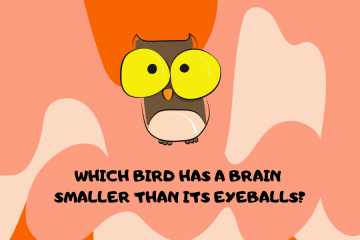Crocodiles are some of the most intimidating and vicious animals around. These reptiles live in almost every tropical habitat there is. They can be found in Asia, Africa, Australia, and North America, but happens if you come across one, can you outrun it? or will you become their next meal? this article covers exactly that, read on!
How Fast Can a Crocodile Run on Dry land?
Crocodiles are very fast animals, which can reach more than 12 km/h on land.
The speed of a crocodile is not very high but it is enough to catch its prey. In general, crocodiles move slowly on dry land because they have small legs and long tails.
Crocodiles are fast swimmers and hunters but their speed on dry land is only about 10 to 15 kph for short periods depending on age, size and the type of habitat where they live.
Crocodiles are slow compared to other predators like lions or tigers who can run at speeds up to 50 kph for short distances.
What Influences Crocodile Speed on Land?
Factors influencing crocodile speed on land
1. Size:
Crocodiles are known to be the largest living reptiles. They can grow up to 6 meters long and weigh more than 2,000 kilograms. Their size determines how fast they can run on land. Large crocodiles have longer legs and stronger muscles, which means they can move faster than small ones.
2. Age:
Crocodile’s speed also depends on their age as well as their condition. Young crocodiles usually have a greater speed than older ones because they are more fit than adults who are past their prime age and may not move very fast anymore due to physical limitations.
3. Condition:
The condition of the animal is another factor that affects its speed on land because if it is ill or injured, it will not be able to move as fast as normal animals do because it is not feeling well enough to do so in healthy conditions.
How Fast Can an Average Person Run?
The average person can run 10-20mph and when scared this can increase to up to 40mph for a short amount of time.
The fastest human is Usain Bolt, who has been clocked at 29.4 mph and he is the only human to have broken the 30 mph mark.
Can You Outrun a Crocodile?
In short, Yes, Crocodiles are built for life in the water. They have webbed feet and are powerful swimmers. But when they come out onto dry land, they don’t move as fast as humans do.
A human can run faster than a crocodile because our legs are longer than theirs, our feet are less likely to get caught in mud or swampy areas and we can plan our path ahead of time so we don’t have to stop and think about where we’re going next while running away from danger.
The fastest humans on record are Usain Bolt at 29.4 mph, but even if you’re not a professional athlete, you can outrun a crocodile. The average human speed is about 12 miles per hour (5 meters per second) and it doesn’t take long before you leave your reptilian pursuer behind.
Can a human outrun a crocodile in water?
In water its a different game when it comes to crocs , they are faster and more agile in water and can reach speeds of 15 to 18 mph and can even swim up to 20 miles per hour.
Crocs are well equipped for swimming, with a streamlined body that allows them to move quickly through water. Their eyes and nostrils are located on top of their head, so they can see clearly above water while also breathing through their nose or mouth (depending on which way they’re facing).
What to do if a crocodile chases you?
Conclusion
When it comes down to it, a human can outrun a crocodile on land whereas the croc can swim faster than the human.
Unfortunately, humans don’t have gills so we can’t breathe underwater, and crocs are incredibly powerful swimmers that can easily catch up to you if you try to swim away from them. if you’re being chased by a croc on land, it’s best not to stand still or try to fight back a person is no match for the reptile’s strong jaws and sharp teeth.

Lydia King is a huge animal lover and has always been fascinated with learning about the animal kingdom. She enjoys writing about anything animal related from scientific information about rare species to animal references in pop culture.












